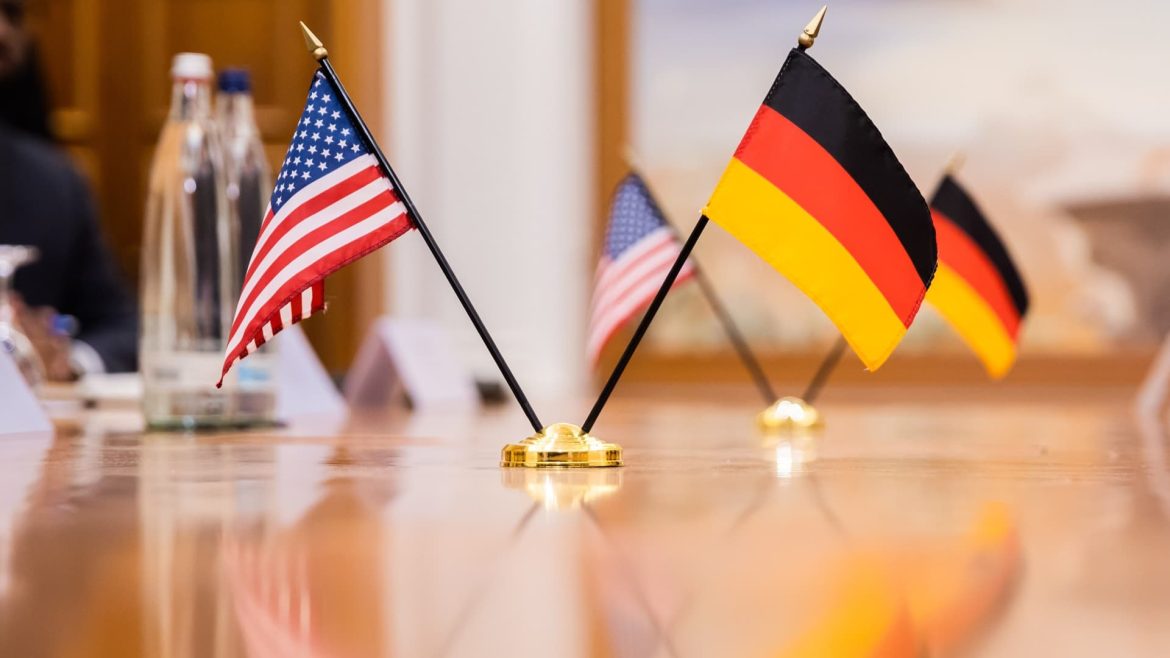Navigating High-Stakes Diplomacy: Friedrich Merz’s Pivotal Encounter with Donald Trump
When German Chancellor Friedrich Merz steps into the White House to meet U.S. President Donald Trump, the geopolitical weight of this encounter could hardly be greater. Freshly installed as Germany’s leader, Merz faces an intricate web of economic, defense, and international security challenges that reflect the complex, sometimes contentious nature of the U.S.-Germany relationship under Trump’s unpredictable presidency.
The Context: A Meeting Laden with Expectations and Risks
Merz’s rise to the chancellery marks a conservative departure with promises to rejuvenate Germany’s role on the global stage, particularly in reinforcing transatlantic ties. However, the legacy of Trump’s administration shows a track record of friction with Germany: trade disputes fueled by tariffs, skepticism about NATO’s solidarity, and repeated U.S. criticisms of German defense spending have strained bilateral relations.
Forewarned by the experiences of other leaders such as Ukraine’s Zelensky and South Africa’s Ramaphosa, who faced “ambush-style” interactions with Trump, Merz prepares for a meeting that could pivot between cooperation and confrontation. His advisers have underscored the critical importance of this first in-person meeting, knowing well that the dynamics established here may influence Germany’s diplomatic posture for years to come.
Core Issues on the Table
Defense Spending and NATO Commitments
A significant needle-mover is Germany’s military expenditure relative to GDP—a long-standing point of contention with Trump, who has publicly criticized NATO allies for “free-riding.” Merz has pledged a substantial military build-up, proposing that Germany dedicate 5% of its GDP to defense, allocating 3.5% to the military proper and 1.5% to supplementary security efforts. This commitment is designed to allay U.S. concerns by signaling Germany’s serious intent to bolster NATO and contribute more equitably to collective defense.
Trade Disputes and Tariffs
Trade issues hover large over the meeting, reflecting a flashpoint between Washington and Berlin. Trump’s tariff impositions have unsettled Germany’s export-driven economy, provoking calls from Merz for a comprehensive abolition of tariffs between the European Union and the United States. Resolving these tensions is critical not only for bilateral economic health but also for the broader transatlantic partnership. The negotiations are delicate, balancing protectionist pressures in the U.S. with Germany’s commitment to free trade.
The War in Ukraine and International Security
The conflict in Ukraine stands as a dominant security concern. Merz’s administration has plunged headlong into diplomatic efforts to sustain Western support for Ukraine’s defense against Russian aggression while seeking avenues toward ceasefire and resolution. The meeting promises intensive discussions on coordinating policies amid shifting geopolitical realities involving Russia, Ukraine, and energy security in Europe.
Furthermore, Middle East conflicts and global security challenges add to the complexity of the agenda. Merz must navigate differing U.S. and European perspectives, striving to uphold Germany’s principles while accommodating Washington’s strategic priorities.
Merz’s Diplomatic Style: Poise Amid Potential Provocation
Despite being a staunch transatlanticist, Merz carries a reputation for straightforwardness and pragmatism. He has openly asked Trump’s team to refrain from meddling in German domestic politics, signaling a desire for mutual respect and sovereignty in their dealings. This posture aims to build a cooperative relationship with less antagonism than seen in prior administrations’ interactions with Trump.
Preparation for possible “ambushes” or sudden policy challenges means Merz enters the Oval Office ready for tough questioning or surprise proposals. His balance of firmness on German interests and openness to dialogue reflects a nuanced understanding of Trump’s negotiation style and the importance of maintaining the “indispensable” alliance post-World War II Germany values deeply.
Broader Implications for Europe and Transatlantic Relations
Merz’s pledge to strengthen Europe independently, even to the point of expressing concern that NATO might be nearing a critical juncture, underscores a growing European desire for strategic autonomy. This meeting with Trump is not just bilateral but emblematic of a wider shift: Europe’s recalibration in response to U.S. unpredictability and global realignments.
Germany’s efforts to position itself as a leader in European security and economic stability signal both an opportunity and a challenge. Success in managing the relationship with the Trump administration could pave the way for closer cooperation; failure risks deepening European uncertainty about American reliability.
Conclusion: Charting a Course Through Uncertainty
Friedrich Merz’s first face-to-face with Donald Trump stands as a diplomatic litmus test amid a fractured global landscape. The stakes encompass defense commitments, economic cooperation, and the collective response to ongoing conflicts in Ukraine and beyond. This meeting is not merely a protocol formality but a crucial moment that will influence the trajectory of U.S.-German relations and, by extension, broader transatlantic stability.
Merz’s challenge is formidable: to emerge from the so-called “lion’s den” of the Oval Office with Germany’s interests intact, strengthened partnerships affirmed, and the groundwork laid for navigating the unpredictable tides of international politics under Trump’s influence. His ability to do so with clarity, resilience, and strategic acumen will resonate far beyond this historic encounter.





